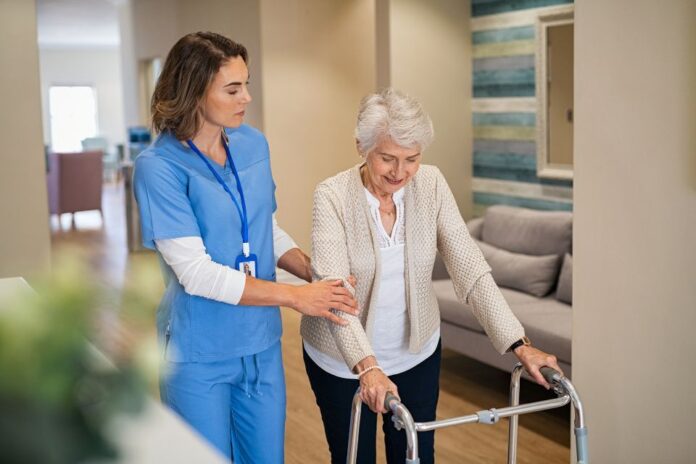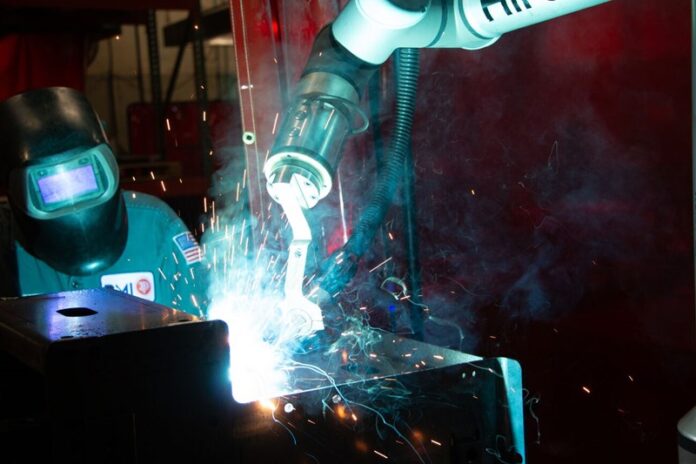Key Takeaways:
- Short term rehab provides intensive therapy for seniors, differentiating itself from long-term care through a goal-oriented and time-bound approach.
- Evidence-based practices in rehab environments promote swift recovery and emotional resilience, fostering a supportive atmosphere for healing.
- Advanced technologies and therapies enhance rehabilitation, improving both physical and cognitive outcomes for seniors.
- Short term rehab facilities assist with the transition from hospital to home, addressing logistical challenges and providing emotional support.
- Personalized care plans are crucial, focusing on individual health needs and recovery goals to improve satisfaction and outcomes.
- Family involvement in rehab enhances emotional support, encouraging better recovery rates and smoother transitions home.
- Emotional well-being is integral to the rehab process, with facilities increasingly incorporating mental health support for seniors.
- Rehab programs aim to build skills for independence, preparing seniors for everyday life challenges post-discharge.
- Educational resources emphasize the importance of healthy lifestyle choices to support long-term independence and fulfillment.
The Magic of Short Term Rehab: A Closer Look
What Makes Short Term Rehab Different?


Short term rehab is designed to provide intensive therapy services for seniors recovering from surgery, illness, or injury. Unlike long-term care facilities that can often feel institutional, short term rehab centers focus on delivering a highly controlled, therapeutic environment that promotes swift recovery.
The key difference lies in the duration and intensity of care. While long-term care typically accommodates chronic conditions and ongoing needs, short term senior rehab programs are goal-oriented and time-bound, ensuring that seniors receive the care they need to accelerate their recovery within a few weeks.
This setting fosters an atmosphere that emphasizes recovery through structured schedules, multidisciplinary teams, and specialized rehabilitation techniques.
At these facilities, patients benefit from a range of services tailored to their specific medical and physical needs. The approach is evidence-based, integrating both medical and therapeutic interventions designed to tackle the challenges faced during recovery.
For instance, post-operative patients from hip or knee surgeries may engage in physical therapy that not only addresses their mobility issues but is also adjusted to meet their pain levels, stamina, and overall progress.
These personalized care plans ensure that seniors regain their independence as quickly as possible while remaining in a supportive environment.
The Science Behind Swift Recovery
Scientific research suggests that the relationship between environment and healing is significant, particularly for seniors. The importance of a supportive recovery atmosphere can’t be overstated.
Short term rehab environments are engineered to minimize stress and promote healing, making use of comprehensive evidence-based practices.
Various studies have shown that engaging in consistent therapy—be it physical, occupational, or speech therapy—contributes to faster, more efficient recovery rates.
This is partly due to the body’s ability to adapt and heal when immersed in constant motivation and targeted therapeutic interventions.
Moreover, short term rehabilitation utilizes advanced technologies and techniques in recovery therapies.
Sophisticated equipment, such as anti-gravity treadmills or virtual reality systems, provides interactive environments that enhance both physical and cognitive rehabilitation.
The neuroplasticity of the brain, particularly in older adults, demonstrates that guided therapy can effectively retrain the body and mind toward improved health outcomes.
Finally, the social interaction within rehab programs serves to diminish feelings of isolation and promote emotional resilience, which are vital components of comprehensive healing.
From Hospital to Home: The Transition Journey
Navigating Post-Discharge Challenges


The transition from hospital care to home often presents significant challenges for seniors and their caregivers. After experiencing an acute medical event or surgery, many seniors face physical limitations, emotional distress, and uncertainty about their health status.
This shift can breed anxiety, as individuals worry about performing daily activities that once required little thought.
They may find themselves feeling overwhelmed by the responsibilities of home management, medication adherence, and follow-up appointments. It’s a critical period during which a seamless transition can significantly impact recovery outcomes.
Upon discharge, patients often face a barrage of questions and logistical puzzles. How will I manage my medications at home? How do I schedule follow-up appointments for therapy?
What help will I need for daily tasks? These are not just minor inconveniences, but significant obstacles that can hinder rehabilitation if not addressed adequately.
This transitional phase is when short term rehab facilities prove invaluable, as they actively work on creating a bridge between hospital discharge and home readiness.
Many rehab centers engage social workers or discharge planners who specialize in navigating these challenges, helping to develop comprehensive post-discharge plans that include community resources, support systems, and even caregiver education.
How Short Term Rehab Facilitates a Smoother Transition
Short term rehab plays a crucial role in easing the transition from hospital to home. Facilities typically adopt a holistic approach that encompasses physical recovery, emotional support, and education for both seniors and caregivers.
This takes the form of comprehensive discharge planning that begins as soon as the patient arrives at the rehab center. Care teams passionately work with patients to establish firm goals that will lead them toward independence and readiness for discharge.
Daily therapy sessions are crafted to gradually enhance strength and confidence, ensuring that seniors can effectively navigate their homes post-rehab.
Training also plays a pivotal role in this transition. While within the rehab environment, seniors often receive practical training on how to regain their independence, such as using adaptive devices, managing their daily routines, and implementing home safety measures.
Programs frequently involve caregiver training, too, as family members learn strategies to support their loved ones effectively once they return home.
Furthermore, the presence of empathy and community in rehab facilities lends seniors emotional support, creating a network that fosters resilience.
This creates a safety net for patients, ensuring they do not feel alone as they adjust to life post-discharge.
Personalization in Care: Why It Matters
Tailored Therapies: Meeting Individual Needs


Personalized care is the cornerstone of effective rehabilitation efforts in short term settings. Recognizing that each elderly individual comes with unique health requirements, recovery goals, and personal circumstances, rehabilitation professionals prioritize customized therapy plans.
This encompasses a comprehensive assessment that includes physical capabilities, cognitive processing, emotional health, and social dynamics.
Such assessments collaboratively involve medical professionals, therapists, and, crucially, the patients themselves, who help define their recovery objectives.
Tailored therapy sessions may range from physical rehabilitation, where a focus is placed on building strength and mobility, to occupational therapy aimed at improving daily function.
Cognitive therapy is also increasingly vital, often woven into the fabric of rehabilitation, especially for seniors experiencing memory decline or cognitive impairments.
These individualized, goal-directed interactions ensure patients engage with therapies that resonate with their personal recovery needs, enhancing outcomes and satisfaction levels.
Furthermore, flexibility in therapy scheduling allows for adjustments based on daily performance, fatigue levels, and emotional states, all critical aspects of a senior’s overall wellness journey.
The Role of Family in the Rehabilitation Process
The involvement of family in the rehabilitation process cannot be overstated. Family support has direct correlations with recovery rates, emotional well-being, and post-discharge adjustment.
In short term rehab settings, families are often encouraged to participate actively in therapy sessions and decision-making processes.
Incorporating loved ones helps equip them with realistic expectations about the recovery journey and practical skills necessary to provide support upon the patient’s return home.
Educating families about the nature of their loved one’s injuries, recovery trajectories, and the rehabilitation strategies being employed fortifies the familial bond while fostering a conducive home environment for recovery.
Moreover, emotional support provided by family members plays a critical role in mitigating feelings of anxiety and loneliness that may surface as a senior transitions from rehab back to the home environment.
A caring family can bolster a senior’s confidence and provide encouragement throughout therapy, reassuring them that they are not facing their new challenges alone.
As families step into caregiving roles, they can also learn more about adaptive technologies, nutritional needs, and safety considerations essential for maintaining the well-being of their elderly loved ones.
This partnership between caregivers and rehabilitation providers ensures that the trajectory from rehab to home is not only smooth but fortified with a solid support structure.
Long-Term Impact: Beyond Physical Recovery
Emotional Well-Being in the Rehab Journey


While physical recovery is often prioritized in short term rehabilitation, the emotional well-being of seniors undergoing this journey presents equal importance.
Many elderly individuals experience psychological challenges throughout their rehabilitation, including anxiety, depression, or feelings of helplessness as they grapple with changes to their physical capabilities.
Therefore, addressing mental health alongside physical health becomes a vital aspect of the rehabilitation model.
Short term rehab facilities are increasingly integrating mental health professionals into their care teams, offering support services that guide seniors through these emotional hurdles.
Therapeutic activities might include individual counseling, group therapy, or engagement in recreational programs that stimulate socialization and encourage emotional expression.
Such activities not only create a supportive environment but provide seniors with essential coping mechanisms as they navigate the complexities of rehabilitation.
Participating in social interactions within a rehab setting can reduce isolation, promote a sense of community, and bolster positive attitudes toward recovery.
By mitigating emotional challenges, patients are better positioned to focus on their physical recovery goals, ultimately leading to improved outcomes.
Building Skills for Independence After Rehab
As patients progress through their short term rehabilitation, the ultimate aim is to build skills that enable regained independence long after discharge.
This focus is why personalized rehabilitation plans are not solely concentrated on immediate healing but also on preparing seniors for everyday life challenges.
Healthcare professionals in rehab settings work relentlessly to instill independence through practical exercises aimed at enhancing skills in areas such as mobility, self-care, and home management.
By fostering competencies that allow seniors to navigate their homes safely and confidently, rehab graduates can significantly lessen the likelihood of readmission to hospitals.
Furthermore, establishing a routine that emphasizes physical activity, healthy eating, and cognitive engagement post-recovery is essential. Educational programs are often provided to ensure seniors understand the importance of these lifestyle choices and how to implement them independently.
Moreover, community resource connections and ongoing follow-ups can further support independence by linking patients to services such as home health aides, local exercise programs, and social engagement opportunities.
By equipping seniors with the knowledge and resources required, short term rehab not only supports physical recovery but cultivates a sense of purpose and fulfillment as they embark on their journey toward independence.







